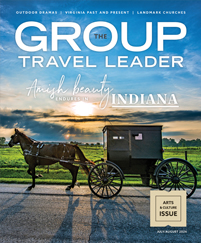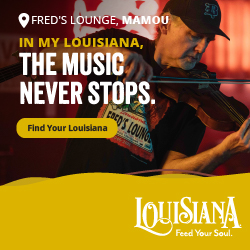It’s time to reintroduce the world to the value of group travel.
The entire travel industry took a beating during the COVID-19 pandemic. But for group travel organizations, the squeeze was especially tight. Many people were nervous to join a trip with people outside their households, and many destinations and attractions were leery of welcoming any more than six or 10 people at a time.
Now that the travel community is shifting its focus, however, the factors that made group travel seem radioactive a year ago may no longer be relevant. But that doesn’t mean that the public at large has a new understanding of how safe tours are or how valuable they can be.
For them to relearn those things, we’ll have to teach them. That means communicating the unique value proposition of group travel in ways that will resonate with travelers in 2022 and beyond.
Here are seven of the key value propositions we see in group tourism, as well as some insights about how you should communicate them to your current and future customers.
Expertise
By definition, visiting a new place requires venturing into unfamiliar territory. And unfamiliarity makes people feel vulnerable and insecure. That’s why travelers so often look for experts to guide them through the places they want to go.
As a group travel planner, you’re in a position to offer the expertise your customers crave. They want to know that you have been where you are asking them to know. They want to feel confident that you’ll take them to the best places, feed them the best meals and overnight in just the right hotels — all at the best price. They may be afraid of missing out on something spectacular. So they count on you to deliver experiences that won’t leave them underwhelmed or dissatisfied.
Of course, you probably aren’t an expert in every destination where you travel. But many partners in the industry, including professional tour operators and local destination representatives, have the expertise to help you fill in the gaps.
Communicating Your Expertise: Let your travelers know that you have visited the places you’re about to take them, or tell them about how many years your tour operator partners have been working in a certain destination. Assure them that you’re meticulously planning the best possible experience for them. Then deliver on that promise.
Reliability
Many would-be travelers are held back by the fear of a nightmare scenario: being stranded in an unfamiliar place without any clear direction for how to get back home. Many people have heard enough stories about flight cancellations and weather delays that they don’t want to take the chance that their own trips might be derailed.
Airlines may not always be reliable, but tour companies are a different story. One of the most remarkable feats of the tour industry was how companies around the world worked quickly to get their travelers home safely at the beginning of the 2020 pandemic. They then refunded many millions of dollars for canceled trips and helped countless other travelers reschedule their trips for the future.
As a group travel planner, you can offer customers confidence that you and your team will be immediately available to help them if something goes awry before or during their travels. Your network of vendors and providers should be vetted for strong finances and a track record of stellar customer care.
Communicating Your Reliability: Tell travelers how long you have been involved in tourism and give them examples of how you have helped others navigate safely through unexpected challenges.
Safety
Group travel is a remarkably safe endeavor. In a normal year, millions of Americans travel in groups, with remarkably few accidents, crimes or safety incidents.
The same cannot always be said of individual travel. People hitting the interstate on vacation don’t have the safety training or track records of professional motorcoach drivers. A poorly conceived or researched meal stop in an unfamiliar place can lead to a nasty bout of food poisoning. And one or two people who find themselves alone in the wrong part of a city at night can become unwitting crime victims.
Your travelers should be confident that they’re safer traveling with you than traveling alone. You’ve inspected the safety records of the companies you contract for transportation. You’ll take them to places where they can wander and explore without being harassed. The restaurants you take them to will provide delicious food prepared with health and safety in mind. They don’t have to worry about getting home in one piece.
Communicating Your Safety: Safety messages should be communicated with subtlety —you don’t want to go overboard on safety jargon because it might turn some travelers off. But if individual customers express concern about it, be prepared with detailed explanations of everything you and your partners do to keep travelers safe on the road.
Convenience
Some people deeply enjoy researching and planning every aspect of their vacations long before they ever begin. These people will likely never be good group tour customers because having someone else do the planning robs them of their favorite part of the experience.
For the rest of us, though, planning a vacation can be a hassle. Arranging transportation, shopping hotel rates, scheduling activities and minding the details can be overwhelming. And keeping everything on track during the trip can feel more like work than play.
That’s where group travel planners come in handy. As a travel coordinator, you do all the hard work of planning a trip. Your customers don’t have to do anything but reserve their place, pay their balances and pack their bags. And during the trip, they don’t have to worry about schedules, directions or prices. They get to sit back and enjoy the destinations you visit without thinking about all the work it takes to get there.
Communicating Your Convenience: You make trips simple and easy for your customers, so everything about your messaging, marketing and pretrip communication should be simple and easy, too. From first contact to final payment, emphasize to prospective clients that they don’t have to worry about anything. You’re taking care of all the details.
Cost
Unless they are ultrawealthy, few travelers book vacations without first thinking about the cost. And though all travel comes with a certain amount of expense, group travel offers economies of scale that help customers maximize the value they get for every dollar spent.
Because almost everything is cheaper in bulk, tour operators and travel planners usually have access to hotel rates, restaurant prices, ticket packages and other discounts that aren’t available to the general public. As a result, many tours cost less than what similar accommodations and activities would cost if travelers booked them on their own. (The current surge in demand and shortage of labor is distorting travel pricing across the board right now, but we expect these factors to ease and pricing to normalize in the next year or two.)
Even when tour prices aren’t much lower than the cost of going it alone, tours almost always win out in overall value. The door-to-door service and inclusions of tours means that customers get much more than what they pay for.
Communicating Your Cost: For a long time, low prices were the driving value proposition of the tour industry. Cost savings don’t necessarily appeal to today’s travelers the way they did 20 years ago, though. So instead of selling on price, emphasize how much travelers will see instead of how much they’ll save.
Exclusivity
Among the best developments in the tourism industry over the last decade or so has been the creation of exclusive benefits and experiences for tour groups. Groups today get to do a lot of things regular travelers don’t.
Any individual or family can buy tickets to a Broadway show, for instance; but only groups can arrange to have a meet-and-greet or a song-and-dance workshop with cast members before the performance. Museums around the country have created behind-the-scenes tours for groups that aren’t available to the general public. And groups often get to skip the lines and go straight into an attraction, not to mention skipping the check-in desk at a hotel or the host stand at a restaurant.
As a group travel planner, you should make sure there are exclusive benefits built into every trip you package. As you work with hotels, attractions, restaurants and other vendors, ask what they can do to make your groups feel special. You’ll be surprised by what they offer.
Communicating Your Exclusivity: The special nature of the experiences you offer customers should be front and center of all your messaging and marketing materials. Emphasize that all your travelers are treated like VIPs and that they’ll come home with bragging rights their friends don’t have.
Community
Hitting the road with old friends — and making new ones — has always been one of the most appealing aspects of group trips. Now, after many people have spent nearly a year and a half in isolation, the community aspect of tourism is more compelling than ever.
Tours can provide excellent opportunities for friends or like-minded members of community organizations to get to know each other and deepen their relationships. And let’s face it, there are many people who would rather travel with friends than family members. Other group trips draw in diverse groups of people who have never met and give them the opportunity to form new friendships over good meals and shared experiences on the road.
There are aspects of the tour experience that individual travelers can replicate on their own. But they’ll never be able to replicate the community that you foster on tours. Work hard to make sure that customers end each of your trips with deeper relationships than when they started.
Communicating Your Community: Your marketing materials, newsletters and social media posts should emphasize that your travelers have fun together. Use images that show people together having a blast — not just couples on a beach, but diverse groups of girlfriends or intergenerational groups enjoying the places you visit.











